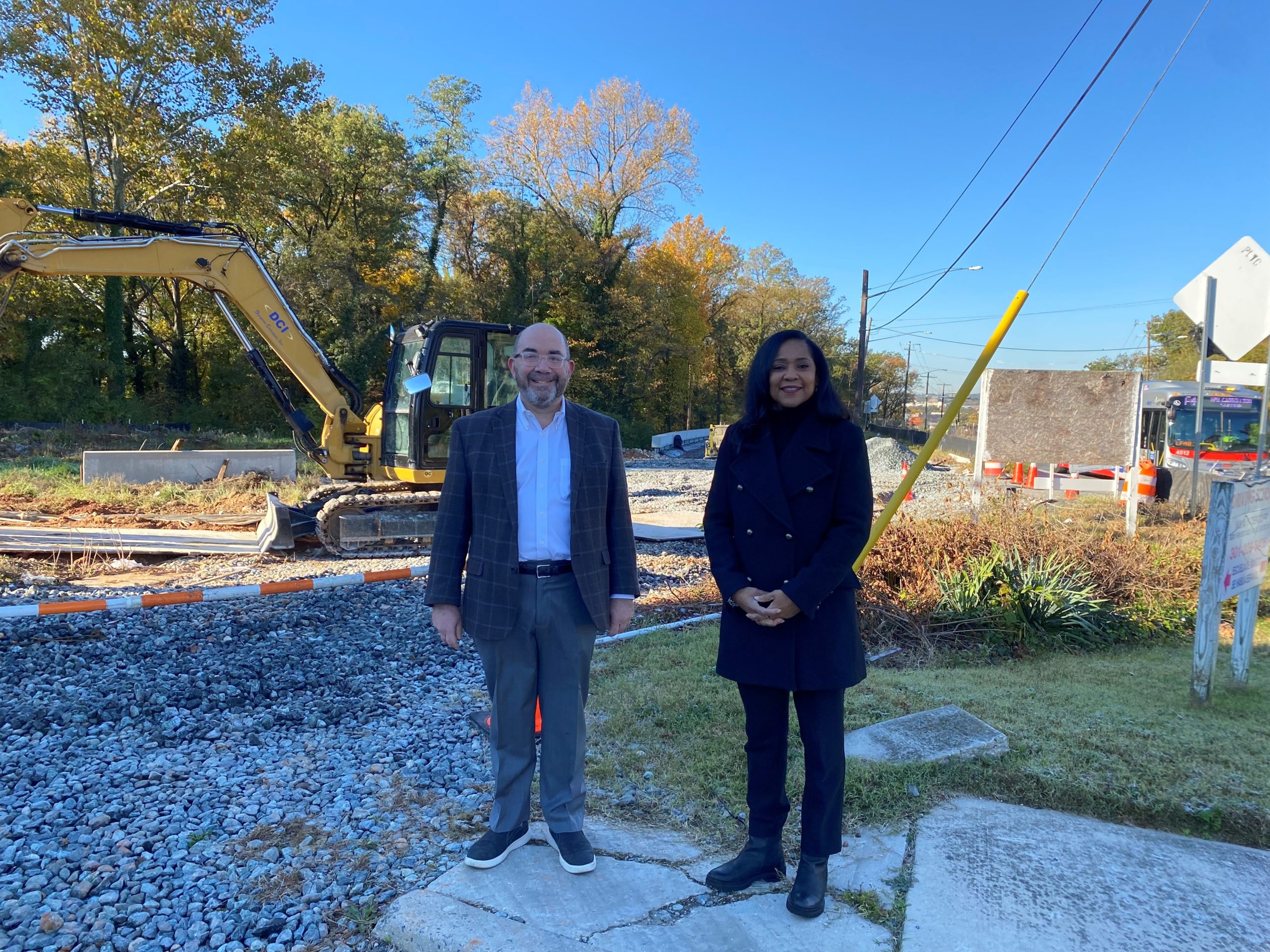For Immediate Release: November 8, 2021
Media Contact: Betty Hwang 202-379-8126 Betty.j.klinck@kp.org
ROCKVILLE, Md.— Kaiser Permanente has made a $5 million investment in a loan fund that supports the preservation and production of affordable housing along the Purple Line corridor in Prince George’s County and Montgomery County, Maryland. Kaiser Permanente continues to recruit additional investors to grow the fund, which has now reached $10 million with this investment.
The Purple Line is a 16-mile light rail line that will extend from Montgomery County to Prince George’s County, aiming to improve east-west transportation, create jobs, reduce traffic, lower greenhouse gas emissions, and connect people with their places of work. Unfortunately, transit-oriented development often increases housing costs and displaces people of color, as well as low-income and working-class families in many neighborhoods. Kaiser Permanente seeks to maintain the 17,000 homes within one mile of the Purple Line corridor that are currently affordable to individuals with incomes at 60% or less of area median income.
“Kaiser Permanente is dedicated to improving the health of the communities we serve. Access to stable, affordable housing and economic opportunity — supported by reliable, affordable transit — plays a huge role in health care outcomes and overall wellbeing,” said George Leventhal, director of Community Health at Kaiser Permanente. “This fund will enhance the livability of communities along the Purple Line corridor without displacing long-time residents and businesses.”
Loans from the Purple Line corridor revolving loan fund will go to nonprofit and for-profit community groups developing affordable housing. They will be administered by the National Housing Trust (NHT), a non-profit dedicated to preserving affordable housing through public policy advocacy, real estate development, community impact, and lending. NHT is also part of the Purple Line Equitable Transit-Oriented Development Collaborative, an initiative funded by JP Morgan Chase, which initially seeded the loan fund. Loans will be available at very low interest rates and liberal terms and will primarily support predevelopment and help projects seek full financing through the Low-Income Housing Tax Credit or other funding sources.
Kaiser Permanente’s $5 million investment is made as part of a partnership between the healthcare organization, the East Bay Community Foundation, NHT, Enterprise Community Partners and the University of Maryland National Center for Smart Growth. The Kaiser Permanente loan, which is an impact investment, was issued from the company’s Donor Advised Fund (DAF) managed by EBCF at the direction of Kaiser Permanente as a donor.
“We are gratified to work with Kaiser Permanente and other partners to ensure that affordable housing along the Purple Line continues to be available to the surrounding community,” said Valerie Red-Horse Mohl, CFO of East Bay Community Foundation. “From a strategic and long-term perspective, we believe this loan structure is groundbreaking as we unlock more DAF dollars into impact investments that are scalable and sustainable. Kaiser Permanente is a true role model, and we believe their involvement and dedication will attract other large institutions to commit funds to this urgent cause.”

Kaiser Permanente’s Director of Community Health, George Leventhal, poses with Lisa Butler-McDougal, president, SEED, Inc. at the site of an affordable housing project planned to be constructed adjacent to the Purple Line in Riverdale, Maryland.
Long-Term Commitment to the Purple Line Corridor. Sowing Empowerment & Economic Development, Inc. (SEED), a community development corporation in Riverdale, Md., is among the first borrowers from the fund. The loan will support SEED’s efforts to develop Headen Spring, a 10-acre campus offering 290 affordable housing units and community services in Riverdale, MD, including a mix of multifamily, senior and town homes.
“This funding was critical to jump-start our affordable housing project. We are excited to be part of an endeavor where resources are going right back into our community and helping those who need it the most,” said Lisa Butler McDougal, president, SEED, Inc.
“The Purple Line creates tremendous opportunity to connect communities to public transit and give residents new access to health care, job opportunities, and housing choices,” said Priya Jayachandran, president, National Housing Trust. “For current residents and businesses to benefit from the new line, we must prioritize thoughtful development and economic support for who those are already there.”
In addition to the $5 million investment, Kaiser Permanente has committed more than $1.4 million in community grants dedicated to improving economic and community development in the Purple Line corridor over the past three years and is a steering committee member of the Purple Line Corridor Coalition as well as an anchor institution for Accelerating Investments for Health Communities. Kaiser Permanente has also committed $1.5 million to support a philanthropic and community development initiative in greater Riverdale in 2019, partnering with local leaders, schools, nonprofits, and community organizations to improve housing conditions and create economic opportunity.
About Kaiser Permanente
Kaiser Permanente is committed to helping shape the future of health care. We are recognized as one of America’s leading health care providers and not-for-profit health plans. Founded in 1945, Kaiser Permanente has a mission to provide high-quality, affordable health care services and to improve the health of our members and the communities we serve. We currently serve almost 12.5 million members in 8 states and the District of Columbia. Care for members and patients is focused on their total health and guided by their personal Permanente Medical Group physicians, specialists, and team of caregivers. Our expert and caring medical teams are empowered and supported by industry-leading technology advances and tools for health promotion, disease prevention, state-of-the-art care delivery, and world-class chronic disease management. Kaiser Permanente is dedicated to care innovations, clinical research, health education, and the support of community health. For more information, go to about.kp.org
About the National Housing Trust
The National Housing Trust creates and preserves affordable homes to provide opportunity, advance racial equity, reduce economic disparities, and strengthen community resilience through practice and policy. Using the tools of real estate development, rehabilitation, finance, and policy advocacy, in conjunction with sustainable practices, the Trust is responsible for saving more than 36,000 affordable homes in all 50 states and leveraging more than $1.2 billion in financing. NHT owns over 4,200 units in 35 properties across the country, currently serving over 3,000 families. By coupling lending and real estate development with experience implementing successful, cost effective, and replicable solutions, NHT tailors solutions to best meet the needs of individual communities. As policy advisors, real estate developers, a Community Development Financial Institution, and service providers, NHT understands the intersection of policy goals and on-the-ground results.
About the East Bay Community Foundation
Founded in 1928, and supported by over 400 local donors, the East Bay Community Foundation (EBCF) connects donors with community-led movements to eliminate structural barriers, advance racial equity, and create an inclusive, fair, and just East Bay. Recognized as 2019’s “Boldest Community Foundation” by Inside Philanthropy, EBCF is committed to ensuring that all members of our community are treated fairly, with equitable opportunity and outcomes. EBCF has charitable assets under management of over $800 million. For more information, visit ebcf.org.
###


